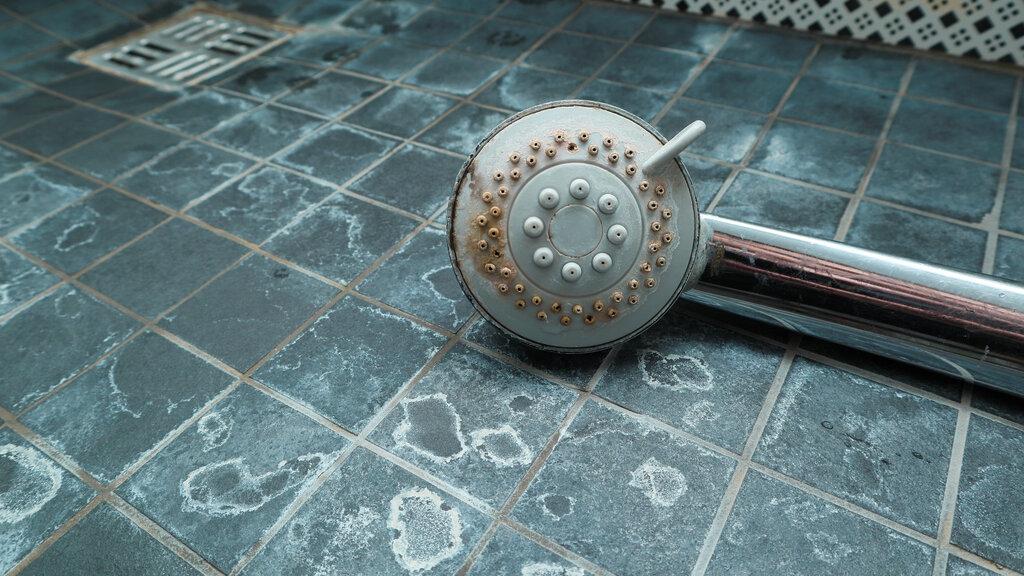
What is hard water?
Hard water is a result of dissolved minerals Calcium, Magnesium, and Manganese. Hard water is a very common problem, affecting water in more than 85% of the country (Water Quality Association).
The term “hardness” is applied to the soap neutralizing power of water. Hardness is usually reported in terms of an equivalent concentration of calcium carbonate which is the amount of calcium carbonate required to cause a hardness equal to that caused by all the substances producing hardness in the water. When the calcium concentration is more than 10.5 grains per gallon, or 180 ppm, the water is considered very hard.
Almost all of Kansas is considered to have very hard water. So, this issue is right in our own backyard!
Hard water may not seem like a significant household concern, but behind the scenes, it can be a nuisance to your plumbing, appliances, and day-to-day cleaning. Over time, minerals in hard water build up inside your plumbing and clog the faucets, appliances, and piping. Avoid these long-term issues by learning more about the potential problems caused by hard water and how to resolve them.
The Most Common Hard Water Concerns:
Ruin Your Pipes
Over time, the continued mineral buildup caused by hard water gets heated and develops into limescale. This limescale accumulates and can cause corrosion and low water flow. This puts more pressure on your pipes to keep water flowing efficiently throughout your home. Hard water can cause rust or corrosion on pipes and can even slow drains from the buildup.
Skin Irritation
The excess calcium and magnesium in hard water can irritate or dry your scalp. The residue left can clog your hair particles and prevent hair products from fully absorbing. It can also result in dry, flaky skin, creating unhealthy conditions for new hair growth. This issue is often worse for those with a genetic or medical predisposition to hair loss or dry skin.
Other Common Problems Caused by Hard Water
Aside from affecting your pipes, hard water can significantly impact all areas of your home that utilize or regularly encounter your water supply, which is a lot. Here are some of the major issues associated with hard water:
- Frequent plumbing repairs or replacement
- Residue in your showers and tubs
- High water bills due to overcompensation
- Cloudy or damaged dishware
- Dull laundry
- Hard water stains
- White spots and streaks left after cleaning
Hard Water Solutions for Your Home
Here are some tips about how to fix hard water:
- Water softener system. The best solution for whole-home hard water problems is installing a water softener. This long-term solution will help guarantee that your entire home plumbing system is protected against the effects of hard water.
- Showerhead filters. Since this won’t protect your pipes from hard water, we recommend using this solution with a water softener system if your skin or scalp is particularly sensitive to hard water. This can really be a game-changer!
- Rinse aids. Again, this won’t resolve the issue of hard water, but in conjunction with a water softening system, you may find that adding a rinse aid to your dishwasher can help prevent mineral buildup inside the dishwasher and on your dishes.
- Routine plumbing maintenance. We recommend scheduling routine plumbing maintenance regardless of hard water problems, especially for your water heater. Routine flushes will remove mineral buildup and keep your system running more efficiently.
Nix the Hard Water Problems with Water Softening Solutions
Don’t let hard water diminish the efficiency of your plumbing system, appliances, or even the quality of your day-to-day routine. Let the experts at Benjamin Franklin Plumbing assess your home’s hard water needs and provide the best possible solutions. Call us at 316-768-8374 or book an appointment online.
